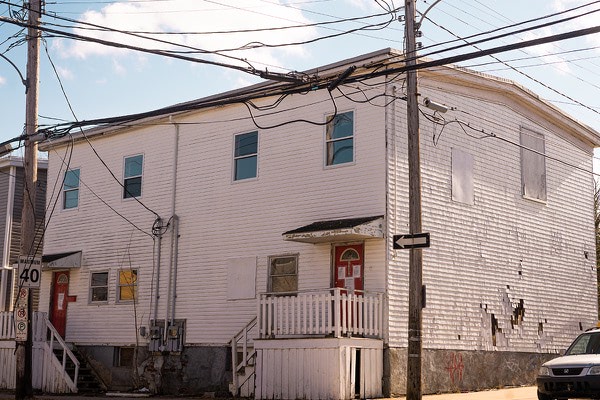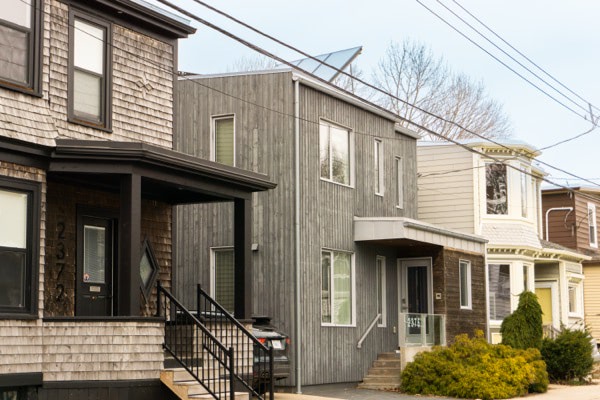How fast can you pay your mortgage off? Can you speed up the process? Here’s what you need to know!

Should you purchase a fixer-upper?
What’s the better move: Paying more for a perfect, move-in ready home, or purchasing a house that needs a lot of love for a bargain? This is the question home buyers must ask themselves if they’re considering buying a fixer-upper. The decision to purchase a fixer-upper comes with a lot of extra baggage, but it can also be a budgeter’s dream in the right circumstances. If you’re entering the market and are at a fork in the road between a move-in ready home and a fixer-upper home, we recommend thoroughly reviewing the pros and cons before making your decision. Here are some of the top items to consider.
Advantages of buying a fixer-upper
More cost-effective than move-in ready homes
Most obvious, and most beneficial for you as a buyer, is the fact that you will be able to spend far less if you purchase a fixer-upper than you would for a move-in ready home. As housing prices continue to rise at astronomical rates, buying a move-in ready home is becoming increasingly unattainable for many people. This is especially true for first time buyers with lower budgets. Buying a fixer-upper allows people to purchase a home at a much lower price. Since these properties need considerable work, they are less valuable and also less likely to attract the same number of buyers as a freshly renovated house. This means you would face less competition and lower housing prices to purchase a fixer-upper.
Potential for passive income
If you plan to buy a fixer-upper with the intent to rent it out, it could become a stream of passive income for you. Of course, you will have to spend money first to make the home liveable for tenants, but in time, you may be able to convert rent into extra income. You will need to ensure you have enough of your own savings to pay for renovations and the mortgage without relying on rent, because lenders need to see that you won’t need to depend on tenants to pay your expenses. However, if you’re able to rent out this property, once it’s paid off, it will provide extra money for you. As a side note, owning an extra property will help you build home equity. If you improve the home’s value, then choose to sell, it will give you a hefty return on your investment.
Freedom of location
Buying a move-in ready house in downtown Halifax, or a big move-in ready property, will be expensive. For example, homes near the Halifax waterfront can sell for over one million dollars. Valuable homes that are either big in size or in a desirable location will be the most expensive, but if you purchase a fixer-upper, you will have more freedom in location. If you desire a downtown spot or a big property, a fixer-upper is your key to securing this with a lower budget. Buying a fixer-upper gives you the opportunity to live in an area that might otherwise be beyond your reach.
Disadvantages of buying a fixer-upper
The market is hot
No matter what type of property you buy right now, the real estate market is hot and competitive. You need to consider your motivations for buying to see if they are worthwhile at this time. For example, if you are simply looking for a way to earn extra income that you don’t need through renting, then buying could be a headache that isn’t worth it. Even if you’re looking for a home to live in yourself, staying in your current home or renting until the market cools down may be a good idea. It all depends on how urgent your needs are to purchase this property.
Keep in mind that as we see more rate increases from the Bank of Canada, we are likely to see the market calm down a bit and price increases slow. This will make demand and competition ease up as well.
Costs of renovating will be high
Although you may be able to purchase a fixer-upper for a much cheaper price, it costs less for a reason. You will need to do lots of renovating to make the home liveable, either for you or your tenants. Renovating at the best of times is a pricey project, but the costs of materials have grown steadily as more people have chosen to renovate over the pandemic, and supplies have been lower in inventory. Renovating a fixer-upper will be very costly, taking in prices for things like flooring, walls, fixtures, and general updates. Plus, you will likely be dealing with upgrading the plumbing, electricity, roofing, or maybe even the foundation. Even though you will save money upfront if you purchase a fixer-upper, you will certainly be spending a lot to take care of the actual fixing! You need to carefully consider whether you will actually end up spending less money once renovations are out of the way, as opposed to buying a move-in ready home.
Tricky to finance
Another hurdle of buying a fixer-upper is securing the mortgage financing for it. Many traditional lenders will not finance a fixer-upper. A home appraisal will determine the property’s value, which is going to be much lower than you intend to make it after renovations. However, most lenders won’t grant a mortgage for more than the home’s appraised value, which will be a challenge. You will either have to cover the remaining expenses yourself, or turn to a private lender. Private lenders are more flexible and more likely to finance a mortgage for a fixer-upper, but they come with higher interest rates you will need to prepare for.
Before you choose to purchase a fixer-upper, it’s crucial to understand the benefits and drawbacks of this move. This is a big commitment that requires a lot of thought, so please don’t rush through your decision! If you need some extra guidance choosing the right option for you, don’t hesitate to contact a mortgage broker. We can walk you through the process and how it might work with your finances and budget.
If you have any questions about buying a property, get in touch with us at Clinton Wilkins Mortgage Team! You can call us at (902) 482-2770 or contact us here.


